Faculty, Students and Alumni Tackle COVID-19 Challenges
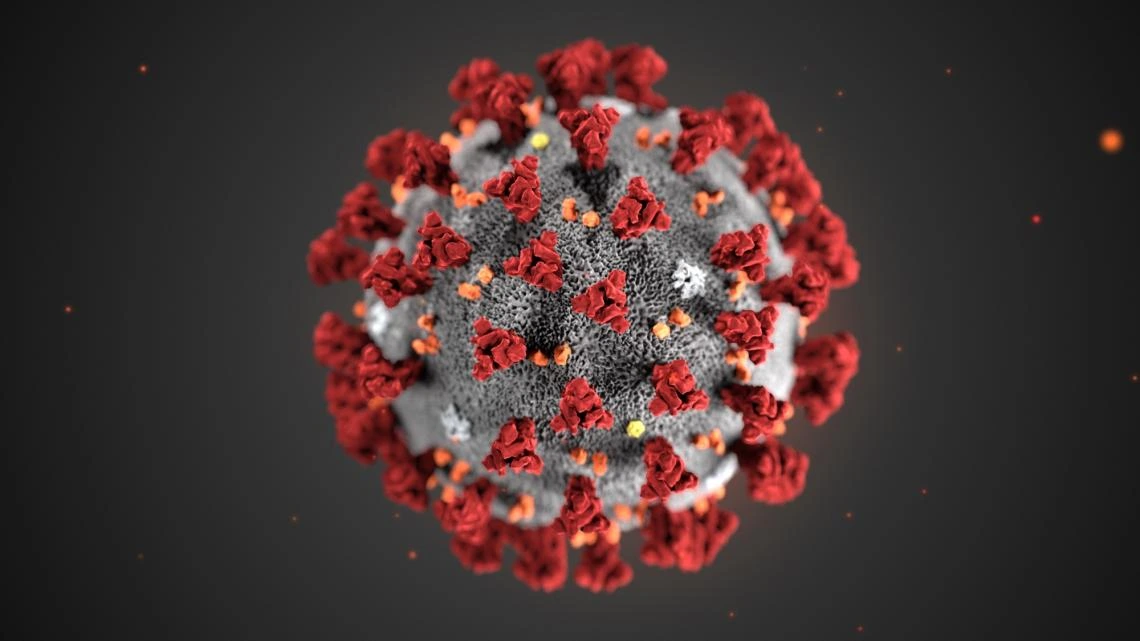
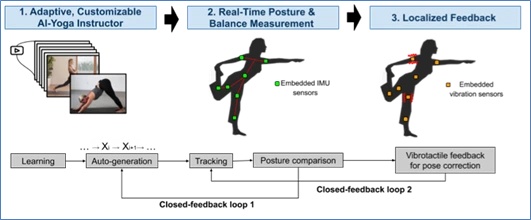
Engineering systems are at the core of understanding, preventing, tracking and treating COVID-19. Researchers in the University of Arizona Department of Systems and Industrial Engineering, the nation’s first academic systems engineering department, are finding ways to operate safely and efficiently during a pandemic, and they are doing research to combat the coronavirus. From creating real-time tracking tools for campus to analyzing patient risk globally, SIE is at the fore in the battle against COVID-19.
“We are grateful for and proud of the contributions our researchers are making to stop the spread of COVID-19 -- at home and across the world,” said Young-Jun Son, professor and department head of systems and industrial engineering.
Understanding the Coronavirus and Shifting Research Focus
SIE and biomedical engineering assistant professor Vignesh Subbian is working with Dr. Jarrod Mosier in the College of Medicine to create a registry of COVID-19 patients hospitalized in Arizona. The researchers also are contributing to patient analysis, nationally and internationally, to better understand relationships between the coronavirus, pre-existing health conditions and the environment. The team received one of the BIO5 Institute’s 13 rapid-turnaround seed grants to fund pandemic-related projects.
While COVID-19 has given rise to a number of new projects, like the Arizona patient database, it also has prompted creative solutions for continuing research that was underway when the pandemic hit. In a recent interview with the Arizona Daily Star, SIE assistant professor Sol Lim discussed how social distancing has made studying human motion particularly challenging. Now her group is experimenting with safe zones and virtual learning processes to advance work on a wearable sensor-based intelligent yoga training system. Fittingly, the device is geared to people with physical disabilities, meaning it will help individuals in vulnerable populations learn yoga remotely.
“We hope people can still enjoy physical exercising without any barriers like inaccessibility or travel difficulties,” Lim told the Star.
Helping Students Safely Navigate School and Life
Effectively communicating guidelines, monitoring behavior and tracing the virus have been critical to the university’s reopening plans.
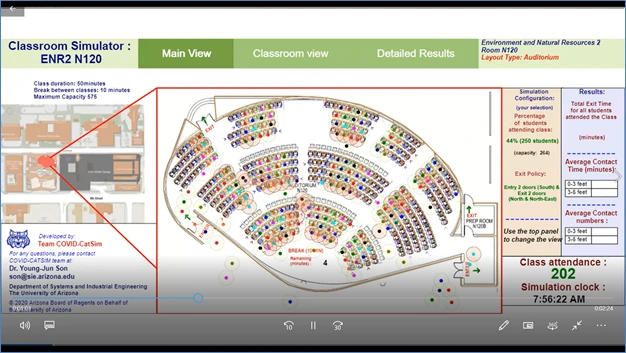
As such, professor Ricardo Valerdi is among the principal investigators on one of the university’s Field Experiments of Interventions on Campus. The behavioral intervention study, which includes a confidential survey, is aimed at gaining knowledge about how University of Arizona students are responding to guidelines related to COVID-19. Collaborators include professor of psychology Jeff Stone; Eller College of Management associate professor Anastasiya Ghosh and assistant professors Jennifer Savary and Laura Brandimarte.
Son and his team are developing a real-time risk-management, navigation and automated alarm tool, called DASH-SAFE, to track viral spread on campus. Other principal investigators are Dr. Esther M. Sternberg in the College of Medicine; professor Bo Yang, associate professor Shujuan Li, and assistant professors Altaf Engineer and Philip Stoker in the College of Architecture; and psychology professor Matthias Mehl.
“Users visualize the safer and riskier areas as they navigate campus and get recommended routes,” said Son. “The information also helps building managers quickly address problems that could increase viral spread.”
Solutions Reach Deep Into the Community
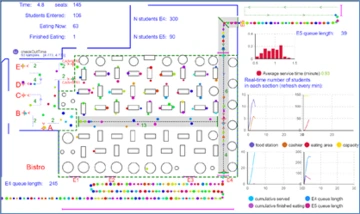
SIE researchers aren’t just applying their expertise to make campus safer. Their research is helping keep others in the community safe. Professor Qiang Zhou and his team, for example, created a simulation model to help local Salpointe Catholic High School visualize and analyze student flows in the dining hall.
Assistant professor Hongyue Jin and graduate student Kamel Alami are working on an agent-based simulation for reallocating medical emergency vehicles to improve coverage and responsiveness, especially in underserved communities particularly hard-hit by COVID-19.
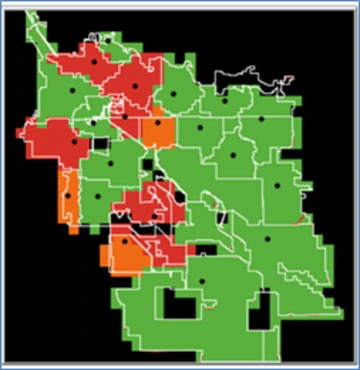
“We are working to better understand the impact of COVID-19 on the demand for medical emergency services in Tucson and develop resource allocation strategies to better serve the community,” said Jin.
Some alumni even restructured their business models to help overcome product shortages during the pandemic. For example, Ryan Kanto, who earned a bachelor’s degree in engineering management and chemical engineering in 2007, and his wife Sarah, adapted their craft distillery, Quantum Spirits, to produce hand sanitizer.
Similarly, a student team completing its capstone project last spring shifted plans at the 11th hour to help frontline workers. The team, including Shawn Dhani from SIE, lost access to equipment for developing an automated 3D-printing process. So the sponsoring company enlisted the students help to build a printer to produce face shields for health care workers. Local TV station KGUN9 featured the reimagined project.
